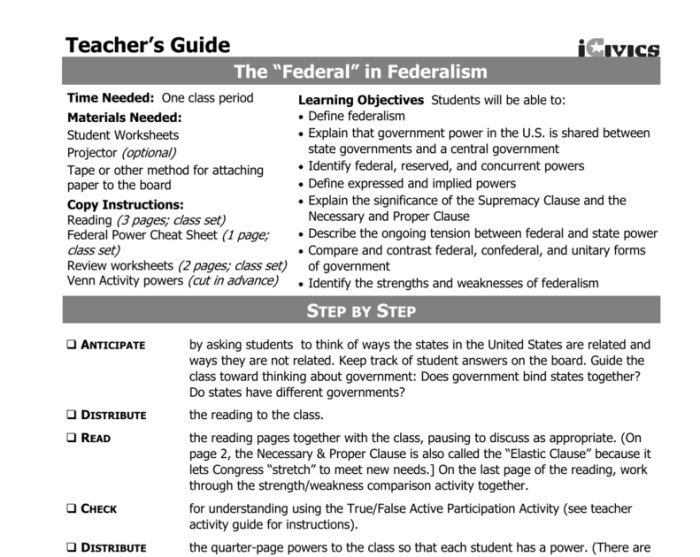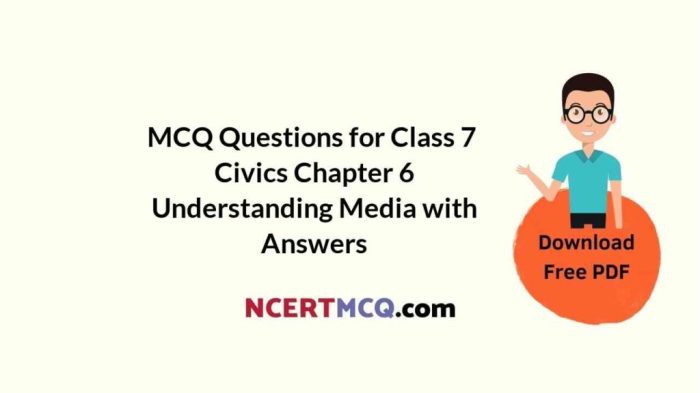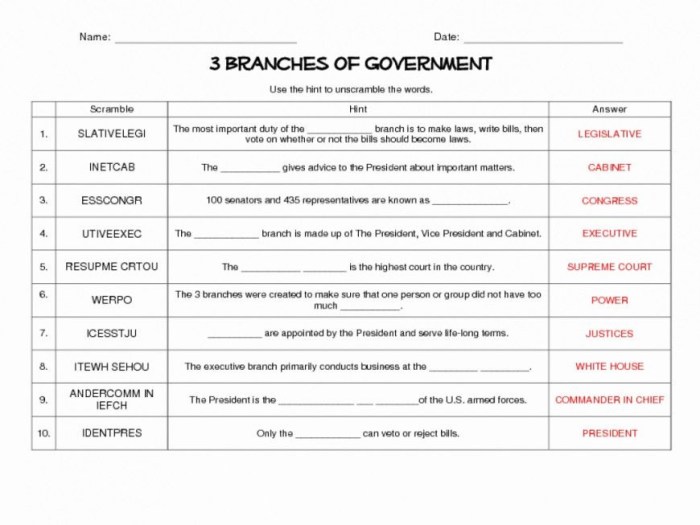Icivics the role of media answer key – iCivics: The Role of Media Answer Key provides a comprehensive overview of the media’s influence on civic education, media literacy, political polarization, representation and inclusion, ethics, and the future of media and civic engagement. This guide offers valuable insights for educators, policymakers, and citizens seeking to enhance civic participation and understanding.
The answer key explores the significance of media in shaping public opinion, promoting civic engagement, and fostering critical media consumption skills. It examines the challenges and opportunities of teaching media literacy and highlights strategies for mitigating the negative effects of media on political polarization.
Role of Media in Civic Education
In the modern era, media plays a crucial role in shaping public opinion, influencing political discourse, and educating citizens about civic issues and responsibilities. Through various platforms such as television, radio, newspapers, and digital media, the media serves as a primary source of information and a catalyst for civic engagement.
Media’s Influence on Public Opinion and Political Discourse
Media has a significant impact on how citizens perceive and understand civic issues. By framing stories, selecting certain perspectives, and amplifying particular voices, media can influence public opinion and shape political discourse. This influence can extend to shaping perceptions of political candidates, policies, and social movements.
Examples of Media Initiatives for Civic Engagement
Recognizing the power of media in civic education, several initiatives and campaigns have been launched to promote civic engagement. Notable examples include:
- PBS NewsHour’s Student Reporting Labs:This program empowers high school students to produce and broadcast news stories on local issues, fostering critical thinking and civic awareness.
- The New York Times’ “1619 Project”:This Pulitzer Prize-winning initiative aims to reframe American history through the lens of slavery and its enduring legacy, sparking public dialogue on racial justice.
- The Guardian’s “Civics 101” series:This online platform provides accessible and engaging content on fundamental civic concepts, encouraging informed participation in the democratic process.
Media Literacy and Civic Participation

Media literacy is the ability to access, analyze, evaluate, and communicate information in various media forms. It is crucial for civic participation as it empowers citizens to critically engage with media content, make informed decisions, and actively participate in society.
Challenges and Opportunities of Teaching Media Literacy
Incorporating media literacy into education presents challenges such as the rapid evolution of media technologies, limited resources, and the need for specialized training for educators. However, it also offers opportunities to foster critical thinking, promote digital citizenship, and prepare students for responsible media consumption in the digital age.
Strategies for Empowering Citizens
- Critical Media Analysis:Encourage individuals to question the credibility, bias, and purpose of media messages.
- Fact-Checking:Provide tools and resources to verify information and identify misinformation.
- Media Production:Engage citizens in creating their own media content to understand media production techniques and perspectives.
- Media Literacy Campaigns:Launch public awareness campaigns to raise awareness about the importance of media literacy and promote responsible media consumption.
Media and Political Polarization

The media plays a significant role in shaping public opinion and political discourse. However, it can also contribute to political polarization and division. This occurs when media outlets cater to specific audiences, reinforcing their existing beliefs and values while excluding or marginalizing opposing viewpoints.
Echo Chambers and Filter Bubbles
Echo chambers are environments where individuals are only exposed to information that confirms their existing beliefs. This can occur through social media algorithms that personalize content based on user preferences, or through the selective consumption of media outlets that align with one’s political views.
Filter bubbles are similar to echo chambers, but they are more focused on limiting exposure to opposing viewpoints. This can lead to a lack of understanding and empathy for those who hold different political beliefs, further contributing to polarization.
Media Representation and Inclusion
Media plays a pivotal role in shaping societal perceptions and norms. It can either promote or hinder diversity and inclusion in civic life. When media accurately represents marginalized voices and perspectives, it fosters a more inclusive and equitable society. Conversely, when media perpetuates stereotypes or excludes certain groups, it reinforces existing biases and perpetuates systemic inequalities.
Examples of Inclusive Media Representation, Icivics the role of media answer key
There are numerous examples of media that have successfully represented marginalized voices. For instance, the television series “Orange Is the New Black” features a diverse cast of characters from various racial, ethnic, and socioeconomic backgrounds, challenging stereotypes and highlighting the complexities of the prison system.
The film “Moonlight” depicts the experiences of a young, black, gay man growing up in a poor neighborhood, providing a nuanced and empathetic portrayal of an often-overlooked community.
Strategies for Increasing Representation and Inclusivity
- Increase Diversity in Media Production:Encourage media companies to hire more writers, producers, and directors from underrepresented groups to ensure diverse perspectives are reflected in media content.
- Provide Training and Support:Offer training programs and support systems for media professionals to develop their skills in creating inclusive content and avoiding harmful stereotypes.
- Promote Independent Media:Support independent media outlets and filmmakers who are committed to creating diverse and inclusive content, providing alternative voices and perspectives.
- Educate Media Consumers:Foster media literacy among the public to equip them with the critical thinking skills to identify and challenge biased or exclusive media representations.
Media Ethics and Civic Responsibility: Icivics The Role Of Media Answer Key
In the realm of civic education, media organizations bear a significant ethical responsibility to provide accurate, unbiased, and comprehensive coverage of civic issues. Their role in shaping public opinion and fostering civic engagement demands adherence to ethical principles that prioritize the public interest.
Biased or inaccurate reporting can have detrimental consequences for civic engagement. Misinformation and disinformation can undermine trust in institutions, sow division, and hinder informed decision-making. It can also discourage participation in civic activities, as citizens may feel their voices are not being fairly represented or their concerns are being dismissed.
Ethical Media Practices in Civic Education
To fulfill their civic responsibility, media organizations should adhere to the following ethical guidelines:
- Accuracy and Objectivity:Report facts accurately and strive for objectivity, presenting multiple perspectives and avoiding sensationalism or bias.
- Transparency and Accountability:Disclose sources, methods, and potential conflicts of interest to ensure transparency and accountability.
- Contextualization and Analysis:Provide context and analysis to help audiences understand the significance and implications of civic issues.
- Respect for Diversity:Represent diverse perspectives and voices to promote inclusivity and foster a sense of belonging.
- Promote Civic Dialogue:Facilitate constructive civic dialogue by providing platforms for discussion, debate, and collaboration.
Future of Media and Civic Engagement

The media landscape is undergoing rapid transformation, driven by technological advancements and evolving consumer behavior. These changes have significant implications for civic education and participation, creating both opportunities and challenges.
Emerging Trends and Technologies
- Artificial Intelligence (AI):AI-powered tools can automate content creation, fact-checking, and personalization, potentially improving the accessibility and accuracy of civic information.
- Virtual and Augmented Reality (VR/AR):Immersive technologies can provide engaging and interactive experiences that foster civic understanding and empathy.
- Social Media:Social media platforms continue to play a crucial role in shaping public discourse and facilitating civic engagement, although concerns about misinformation and polarization persist.
- Citizen Journalism:The rise of citizen journalism empowers individuals to report on and share civic issues, potentially democratizing the media landscape.
Potential Implications
These emerging trends have the potential to:
- Enhance Civic Education:Immersive technologies and AI can create engaging learning experiences that make civic concepts more accessible and relevant.
- Increase Participation:Social media and citizen journalism can lower barriers to civic engagement by providing platforms for individuals to express their views and connect with others.
- Challenge Traditional Media:New media platforms can challenge the dominance of traditional media outlets, providing alternative sources of civic information and perspectives.
- Exacerbate Existing Challenges:Concerns about misinformation, polarization, and media bias may be amplified in the digital age.
Strategies for Harnessing New Media
To harness the potential of new media for civic engagement, strategies should include:
- Media Literacy Education:Equipping citizens with the skills to critically evaluate and consume media content is crucial for combating misinformation and promoting informed decision-making.
- Promoting Citizen Journalism:Supporting citizen journalism initiatives can empower individuals to contribute to the public discourse and share diverse perspectives.
- Leveraging Social Media:Utilizing social media platforms for civic education and engagement, while addressing concerns about echo chambers and misinformation.
- Collaborating with Tech Companies:Partnering with technology companies to develop innovative tools and platforms that promote civic engagement.
Expert Answers
What is the role of media in civic education?
Media plays a crucial role in educating citizens about civic issues and responsibilities, influencing public opinion, and shaping political discourse.
What is media literacy?
Media literacy is the ability to critically evaluate and consume media content, including understanding its purpose, bias, and potential impact.
How can media contribute to political polarization?
Media can contribute to political polarization by creating echo chambers and filter bubbles, which limit exposure to diverse perspectives and reinforce existing beliefs.